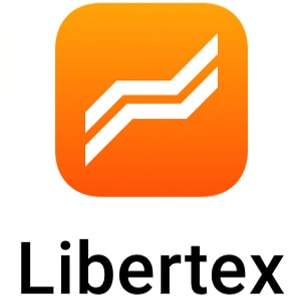If you are trying to compare DEGIRO with Libertex, you may find it to be a daunting task. These two brokers may appear alike, but they are actually different animals. DEGIRO is a pure stockbroker, low-cost provider, and member of a large banking consortium doing business across the European Economic Area (EEA). Libertex has been around for more than two decades and is a blend of a stockbroker and a forex/CFD broker. DEGIRO is a large firm, and Libertex is considered a large entity in its domain, operating out of Cyprus.

Investing involves risks. You can lose (a part of) your deposit. We advise you to only invest in financial products which match your knowledge and experience.



Trading CFDs involves substantial risk of loss and may not be suitable for all investors. Trading such high-risk financial contracts may result in the loss of all the client's invested capital. 77.7% of retail investors lose money when trading CFDs with this provider. You should consider whether you understand how CFDs work and can afford to take the high risk of losing your money.


DEGIRO has earned a reputation as the leading online, low-cost stockbroker across the EEA. Libertex offers a blend of both a stockbroker and forex/CFD broker with tight spreads. DEGIRO claims 2 million+ in loyal fans, while Libertex touts 3 million+ clients worldwide.
DEGIRO was founded in 2013 in Amsterdam and has always been a Dutch company. It drew acclaim by revamping how stocks were bought and sold by cutting commissions to zero and offering tight spreads. It has grown rapidly and was recently acquired by flatex AG, a larger stockbroker and bank that is also traded on the SDAX exchange in Germany. Regulatory oversight primarily comes from the FCA and BaFin.
Libertex was founded in 1997 and has also grown rapidly as a forex and CFD provider, but it also enables the direct buying and selling of stocks. The firm has clients in 110+ countries, has 700+ employees, and has won 30+ international awards for service. Its pricing is on the low end and follows an institutional model for its CFD accounts and commission-free trading for its Portfolio/Invest account series. It is regulated by CySEC, and it is headquartered in Limassol.
DEGIRO does not have a minimum deposit requirement, but funding of your account is less convenient as only direct deposit and wire transfers are permitted. Libertex supports a multitude of deposit methods, but it does have a minimum deposit requirement of €100.
Both DEGIRO and Libertex are brokers that have revolutionised how pricing has evolved in their respective markets. Each is a low-cost provider. DEGIRO provides global access to 50+ exchanges worldwide, and there are occasional pass-through fees that must be absorbed. These fees are small, but there are no fees for deposits or withdrawals, and inactivity fees to not exist.
Libertex follows an institutional pricing approach for its clients, which can be confusing when small transaction fees, commissions and near-zero spreads are applied. The net result is an extremely low set of trading costs, a formula that has worked. There are no fees for deposits, but some fees do apply for some payment providers. Inactivity fees are assessed after 180 days.
DEGIRO supports margin trading of up to 5:1, if your account equity qualifies, but there is no leverage as trading forex is not an option for retail traders. This broker has proved popular due to its tight spreads and near-to-zero commission structure.
Within the EU, Libertex must restrict leverage levels to 30:1 and lower, but leverage as high as 1000:1 is offered in permissible international jurisdictions. The major draw for this broker, as with DEGIRO, is its institutional-like spreads combined with minimal commissions or transaction fees.
DEGIRO offers one standard trading account. Libertex, due to its hybrid status, offers one account for CFD trading and one account for direct buying and selling of stocks. There is also a delineation, based on platform selection, whether the Libertex proprietary one, or MT4 or MT5. There are also pricing incentives for using the proprietary system.
DEGIRO has always supported its internally developed software system. It is designed specifically for its product set and has won several awards over the years. Its mobile app has received recognition for user-friendliness and effectiveness. Unfortunately, the firm does not provide a demo practice-trading platform.
Libertex has an award-winning proprietary platform, but it allows its client to choose MT4 or MT5 platforms for trading CFDs. A demo account is also provided, but not for the stock purchase service.
DEGIRO offers access to several thousand financial instruments from 50+ global exchanges. This portfolio offer includes stocks, ETFs, leveraged products, bonds, options and futures, but no forex pairs or cryptocurrencies for retail trading. The broker does offer access to ETFs that do include crypto programs in their overall holdings.
Libertex offers CFD trading and direct stock buying and selling. Depending on your regulatory jurisdiction, however, you may only have access to 200 to 300 tradable assets. These assets do include currency pairs, stocks, commodities, indices, ETFs, cryptocurrencies and options. Libertex tries not to overwhelm you with thousands of alternative investments.
DEGIRO does not provide demo account. Libertex does provide a demo account for its CFD platforms, but it does not for its direct stock purchase system.
In summary, DEGIRO only focuses on EEA clients and offers a low-cost online stockbroker service. Libertex is global, is also low-cost, and it tries to offer something for everyone. Where DEGIRO offers access to thousands of global stocks and financial instruments, Libertex has focused on a very tight grouping of popular assets to be traded primarily with CFDs. Your choice out of the two will come down to your personal investment goals and what you wish to trade.